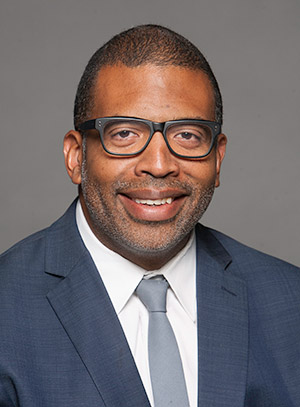Mayor Michelle Wu’s appointment of Boston’s first-ever planning czar is winning praise from developers even as anxiety bubbles over the new mayoral administration’s approach to project permitting.
May 23 marked the first day on the job for Arthur Jemison, the city’s first chief of planning, who is also taking the reins of the Boston Planning and Development Agency (BPDA).
Jemison, who has a background in city, state and federal government, has gotten off to a good start with the city’s real estate community, with developers having had a chance to meet with Jemison at a meeting held last month.
Along with working in city and state government for a number of years, Jemison went on to become the chief planner in Detroit and then a top official at the U.S. Dept. of Housing and Urban Development in Washington, D.C. He previously worked as deputy undersecretary and deputy director of the Massachusetts Dept. of Housing and Community Development.

Arthur Jemison
“We are absolutely excited to have him back,” said Anastasia Nicolaou, vice president of policy and public affairs at NAIOP Massachusetts, which represents the commercial real estate industry.
The concern right now among the city’s real estate world isn’t with Jemison, but ultimately with what his boss may have in mind for the BPDA, said David Begelfer, principal at CRE Strategic Advisors and former CEO of NAIOP Massachusetts.
Since she was a city councilor, Wu has vowed for years to dismantle the BPDA. In the view of Wu and other critics, the agency has not been sensitive enough to neighborhood concerns, with the leveling of the old West End in the late 1950s to make way for luxury apartments often cited as the agency’s original sin.
Wu has been vague on exactly what her pledge to sunset the agency actually means, though, telling reporters a month ago that it will be a “complex organizational project” that will require a “years-long process,” the Boston Herald reported.
“I think he is a great choice. I am not worried about him,” Begelfer said of Jemison. “I am just worried about his job and whether he knows what his job is and that the business community knows what the job is.”
As they try and read the tea leaves, some developers are pointing to mixed signals coming from the Wu administration on the agency’s future.
In particular, at a meeting last month with Jemison, city officials used the opportunity to spread the word about dozens of job openings at the BPDA.
“That was our take from the real estate community–if you are bringing in people that doesn’t mean you are going to dissolve it,” said Greg Vasil, CEO and president of the Greater Boston Real Estate Board.
Ted Tye, managing partner and co-founder of National Development, said Jemison “has a tough job ahead of him” and will have to “hit the ground running.”
Tye, whose firm has transformed what was once a gritty industrial stretch of the South End into the Ink Block residential and retail complex, said there is a sense in the development community that the city’s project permitting process has slowed down amid the changes at the top at City Hall.
President Joe Biden’s announcement 18 months ago that he was picking now-former Mayor Marty Walsh to be his secretary of labor ushered in a period of uncertainty amid the transition to new leadership at City Hall.
The development community is now hoping that the new BPDA head will be able to tackle decisions that may have been deferred and get the regulatory process moving again, Tye said.
“The development community is looking for him to come in and set the tone of the agency and to figure out how to pick things up and get them going,” Tye said.






Post a comment to this article
Report Abusive Comment